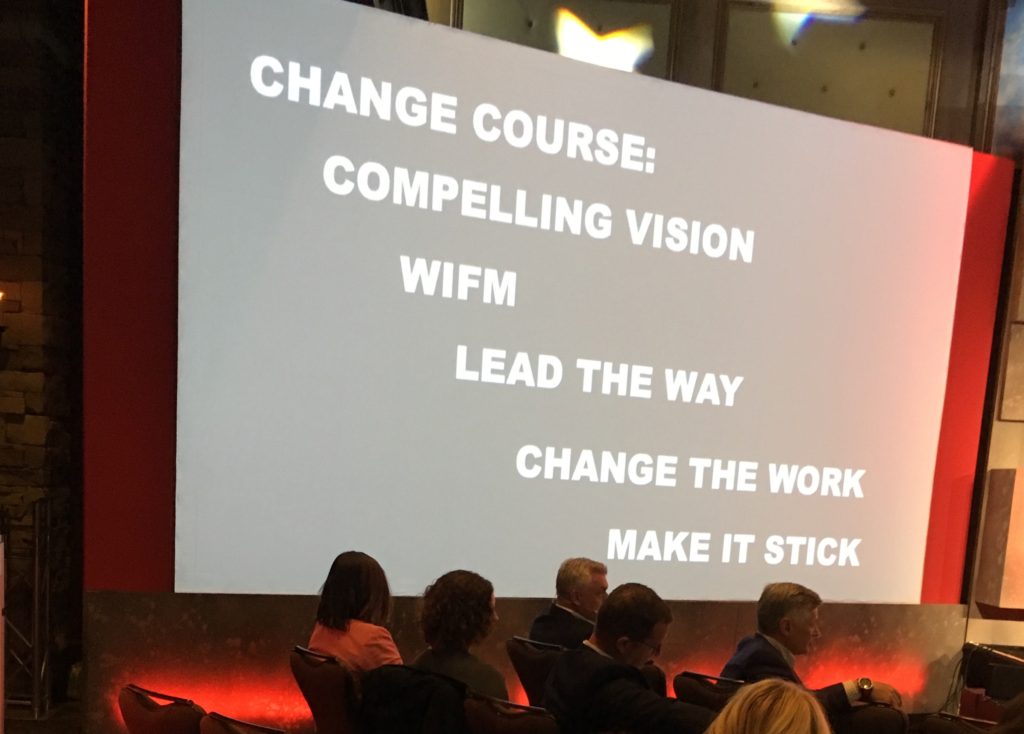I’m out in Park City, UT this week at Hirevue’s Digital Disruption conference. The conference is designed for TA pros and leaders looking to ‘disrupt’ their current TA shop and the agenda is packed with great content and speakers.
Rusty Rueff kicked off the conference with a great keynote on disruption and change. (Side editor’s note: Rusty joined a growing trend of keynotes bringing their notes on stage with them and referring to them often to ensure nothing was missed. Many ‘professional’ keynoters would consider this taboo, but I find it refreshing and more authentic)
Rusty offered up this change model:
#1 – Compelling Vision: The only way you get change started is to have a great compelling vision of what this change will be.
#2 – What’s In It For Me (WIIFM) – If you need your employees to drive change you quickly have to define what’s in it for them, and it you better make it compelling. “You get to keep your job” – is not a compelling WIIFM for most people in 2017!
#3 – Lead the Way – Servant leadership is they key. Are you doing what you say needs to be done, and are you helping in every way to get everyone on board with you?
#4 – Change the work – If you want to change the way you work, you need to change the work. What!?! So many times we want to make big changes but we are unwilling to change how we do things. That’s a problem. If you can’t attract talent, you need to stop what you’re doing, and do something new!
#5 – Make it stick – Big change is hard and it’s super easy to go back and do what you’ve always done when the initial change seems to be worse or not having the results you wanted. You must be courageous to see your vision through to completion. You might fail, but if you don’t make it stick, you’ll never know for sure.
Rusty focused on big change to big things. In the end, this is what matters.
If you focus on making small changes, or even big changes, to small things, it really has little impact. Focus on making big changes to those things that are most important to your organization that isn’t working. Swing for the fences.
This is super hard for us in HR and TA. We never want to break anything, even when it’s not really working. We’re scared of screwing something up more than it’s already screwed up. I can’t tell you how many executives I speak with that fire HR and Talent leaders simply for this reason alone. The fired leader was unwilling to take the chances needed to fix what was broken.
Are you ready to make big changes to big things?

